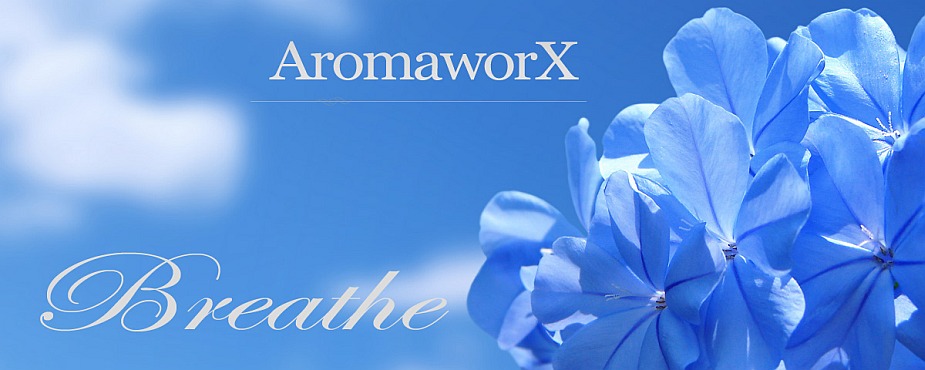What is Aromatherapy?
- Details
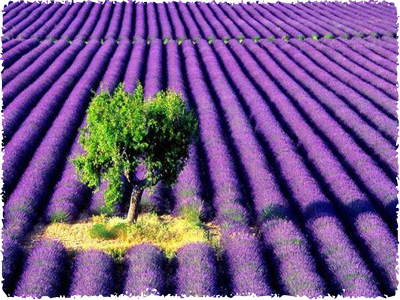
Aromatherapy is the use of essential oils from plants for healing purposes. The word aroma in aromatherapy is misleading because essential oils are not solely used as inhalants. They can also be massaged into the skin or even taken orally (although this is less common). Whether inhaled, absorbed, or ingested, essential oils are gaining new attention as an alternative treatment for infections, stress, and other health problems. (Note: essential oils should never be ingested without specific instruction from a trained and qualified specialist.)
What are essential oils?
Essential oils are concentrated extracts taken from the roots, leaves, or blossoms of plants. Each essential oil contains its own mix of active ingredients, and this mix determines the healing properties of the oil. Some oils promote physical healing -- for example, some are able to relieve swelling or fight fungal infections. Others are used for their emotional value -- they may enhance relaxation or make a room smell pleasant. The essential oil derived from orange blossom, for example, contains a large amount of ester, an active ingredient thought to induce a calming effect. This may explain the tradition of a bride carrying an orange blossom bouquet on her wedding day.
What is the history of aromatherapy?
 Essential oils have been used for therapeutic purposes for nearly six thousand years. The ancient Chinese, Indians, Egyptians, Greeks, and Romans used essential oils in cosmetics, perfumes, and drugs. Essential oils were also commonly used for spiritual, therapeutic, hygienic, and ritualistic purposes.
Essential oils have been used for therapeutic purposes for nearly six thousand years. The ancient Chinese, Indians, Egyptians, Greeks, and Romans used essential oils in cosmetics, perfumes, and drugs. Essential oils were also commonly used for spiritual, therapeutic, hygienic, and ritualistic purposes.
More recently, René-Maurice Gattefossé, a French chemist, discovered the healing properties of lavender oil when he applied it to a burn on his hand after an explosion in his laboratory. Following this unexpected finding, he devoted his time to analyzing the chemical properties of essential oils and to recording their value in treating burns, skin infections, gangrene, and wounds in soldiers during World War I. In 1928, Gattefossé founded the science of aromatherapy. By the 1950's massage therapists, beauticians, nurses, physiotherapists, doctors, and other healthcare professionals began using aromatherapy. In France, more than 1,500 trained physicians use essential oils as an alternative to antibiotics.
Aromatherapy did not become popular in the United States until the 1980s, when essential oils gained the attention of massage therapists, alternative practitioners, and the commercial industry. Today, many lotions, candles, and beauty products are sold under the name "aromatherapy." Unfortunately, however, many of these products contain synthetic fragrances which do not have the therapeutic substances found in essential oils.
How does aromatherapy work?
Researchers are not entirely clear how aromatherapy works, but many experts speculate that our sense of smell plays a very important role. This sense is incredibly powerful -- according to some estimates, about 10,000 times stronger than any other sense. The "smell" receptors in your nose communicate with two structures that are embedded deep in your brain and serve as storehouses for emotions and memories. These structures are called the amygdala and hippocampus. When essential oil molecules are inhaled, they affect these parts of the brain directly. Researchers believe that stimulation of these structures influences our physical, emotional, and mental health. For example, lavender is believed to stimulate the activity of brain cells in the amygdala in the same way that certain sedative medications work.
In addition to stimulating certain brain structures through your sense of smell, essential oils can also influence mood through several other methods. Aromatherapy massage is a popular way of using essential oils because it works in several ways at the same time: it produces benefits from absorbing the oils into the skin, from inhaling the oil's vapors, and from the physical therapy of the massage process itself.
What happens during an aromatherapy session?
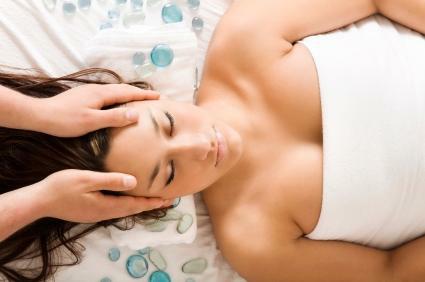 Professional aromatherapists, nurses, physical therapists, and massage therapists can provide topical or inhaled aromatherapy treatment. Only specially trained professionals can provide treatment that involves the ingestion of essential oils.
Professional aromatherapists, nurses, physical therapists, and massage therapists can provide topical or inhaled aromatherapy treatment. Only specially trained professionals can provide treatment that involves the ingestion of essential oils.
At a typical aromatherapy session, the practitioner will ask about your medical history and symptoms, as well as any preferences you may have for certain scents. Depending upon the condition of your health, the practitioner will instruct you to inhale essential oils either directly from a piece of cloth, or indirectly through steam inhalations, vaporizers, or sprays. The practitioner may also apply diluted essential oils to your skin during a massage. In most cases, the practitioner will instruct you on how to continue using aromatherapy at home. For example, many essential oils can be mixed with milk or cream and added to a bath.
What is aromatherapy good for?
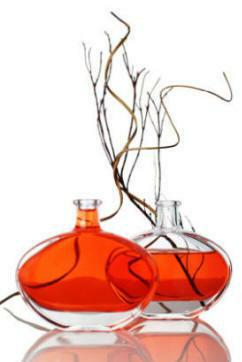 Aromatherapy is used in a wide range of settings - from health spas to hospitals - to treat a variety of conditions. In general, aromatherapy appears to ease pain, enhance mood, and promote a sense of relaxation.
Aromatherapy is used in a wide range of settings - from health spas to hospitals - to treat a variety of conditions. In general, aromatherapy appears to ease pain, enhance mood, and promote a sense of relaxation.
In a study that included more than 8,000 pregnant women in labor, essential oils (particularly rose, lavender, and frankincense) administered by qualified midwives, lessened feelings of anxiety and fear, promoted a sense of well-being, and reduced the need for pain medications during the delivery. Many women also report that peppermint oil relieves nausea and vomiting during labor.
Massage therapy with essential oils may also be of value (together with medications and/or therapy) for people with depression. The smells of the oils are believed to stimulate positive emotions through the limbic system (the area of the brain responsible for memories and emotions). However, the benefits of aromatherapy with massage appear to be related to the relaxation effects of the treatment as well as to an individual's belief that the treatment will be helpful.
Studies have found that chemical compounds in certain essential oils have antibacterial and anti-fungal properties. Some evidence also suggests that citrus oils may enhance immune function and that peppermint oil may promote proper digestion. Fennel, aniseed, sage, and clary-sage have estrogen-like compounds which may make them effective in relieving symptoms associated with premenstrual syndrome, menopause, and the menstrual cycle.
Other conditions for which aromatherapy may be helpful include:
- Alopecia areata (hair loss)
- Agitation, including, possibly, agitation related to dementia
- Anxiety
- Constipation (namely, abdominal massage using aromatherapy)
- Insomnia
- Pain: Studies have found that people with rheumatoid arthritis, cancer (specifically, topical chamomile), and headaches (specifically, topical peppermint) require fewer pain medications when they use aromatherapy.
- Pruritis (itching), a common side effect for those receiving hemodialysis
- Psoriasis
Should anyone avoid aromatherapy?
Women in the first trimester of pregnancy as well as people with severe asthma or a history of allergies should avoid all essential oils.
Pregnant women as well as people with a history of seizures should avoid hyssop oil.
People with high blood pressure should avoid stimulating essential oils such as rosemary and spike lavender.
Those with estrogen-dependent tumors (such as breast or ovarian cancer) should not use oils with estrogen-like compounds such as fennel, aniseed, sage, and clary-sage.
Caution should be exercised when considering use of aromatherapy in cancer patients receiving chemotherapy.
Is there anything I should watch out for?
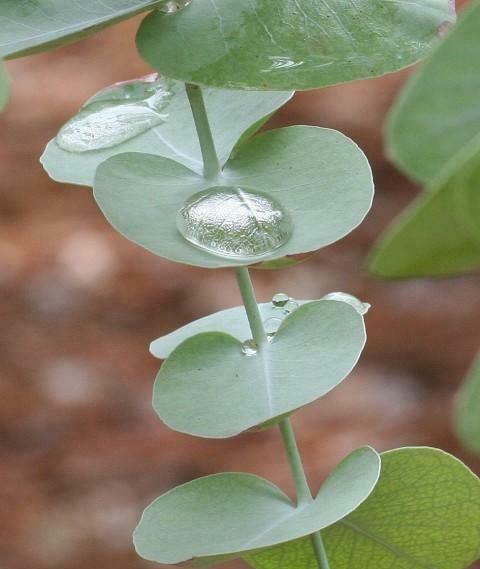 Most topical and inhaled essential oils are generally considered safe. You should never ingest essential oils unless a trained professional advises you to do so. Some oils are toxic and taking them orally could be fatal.
Most topical and inhaled essential oils are generally considered safe. You should never ingest essential oils unless a trained professional advises you to do so. Some oils are toxic and taking them orally could be fatal.
Rare side effects of aromatherapy can include allergic reaction including rash, headache, liver and nerve damage, as well as harm to the fetus (this is why aromatherapy should be avoided during pregnancy unless specifically instructed by an expert).
Oils that are high in phenols, such as cinnamon, can cause skin irritation. Dilute oil with water or a base massage oil (such as almond or sesame oil) before applying to your skin and avoid using near your eyes. In addition, essential oils are highly volatile and flammable so they should never be used near an open flame.
Animal studies suggest that active ingredients in certain essential oils can interact with some medications, but studies in people are needed to confirm. Eucalyptus, for example, may clear certain medications, including pentobarbital (used for seizures) and amphetamine (a stimulant used for narcolepsy and, sometimes, attention deficit/hyperactivity disorder) from the body more quickly, which makes these drugs less effective.
The essential oils sold in stores are often mislabeled. For this reason, you cannot be entirely sure that the amount of essential oil contained in the bottle, or even from dose to dose (if the oil is in capsules), is the same as what is stated on the label. A qualified aromatherapist can help you decide which oils will be most effective for you and can direct you to high-quality products.
What is the future of aromatherapy?
Although essential oils have been used for centuries, few studies have investigated the safety and effectiveness of aromatherapy in people. While there are many potential uses of aromatherapy in a wide variety of settings, conclusive evidence of its effectiveness is lacking. Additionally, there are some concerns regarding the safety and quality of certain essential oils. More research is necessary before aromatherapy becomes a widely accepted alternative remedy with clear medical indications.
For a list of supporting research on this article, visit:
www.umm.edu/altmed/articles/aromatherapy-000347.htm
Liked this article? Dive deeper into personal growth and wellness! Check out CrystalWind.ca for spiritual wisdom or explore AromaWorx.ca for natural well-being tips. Spread the positivity—share this with friends on their happiness journey!
Let’s Chat! Drop Your Thoughts Below! ![]()
Disclaimer Health
All post and information provided within this blog is for educational and informational purposes only, and is not to be construed as medical advice or instruction. No action should be taken solely on the contents of this website. Please consult with your healthcare professional before making any dietary or lifestyle changes or taking supplements that may interfere with medications. Any products or information discussed are not intended to diagnose, prevent, treat or cure any illness, disease or lifestyle. Please consult your physician or a qualified health professional on any matters regarding your health and wellbeing or on any opinions expressed within this website.

Imagine a world of inspiration and healing, free for all—made possible by YOU!
Donate Now—Ignite the Magic at CrystalWind.ca!

Epilepsy - Finding A Cure
Your donation can make a difference!
Help us find a cure – donate now!
Unlock Your Light: Join Lightworkers Worldwide on CrystalWind.ca!
Articles: Aromatherapy
Follow Us!
Featured This Month
Egyptian Zodiac/Astrology
Egyptian astrology was one of the earliest forms of astrology. The Egyptians w... Read more
Cancer Mythology
The Mythology of Cancer: A Celestial Tale of Loyalty and Sacrifice Among th... Read more
Lammas by The Hedgewitch
Although in the heat of a Mid-western summer it might be difficult to discer... Read more
Sun in Cancer
Cancer Sun Sign Characteristics Overview The name "Cancer" comes from Latin, ... Read more
Lugh - Celtic God Of The Sun
The god Lugh was worshiped in Ireland as a deity of the sun. This connection... Read more
Chalcedony
The Stone Of Orators Chalcedony was very popular as a decorative stone in ant... Read more
Abalone Shell
Echos Of The Ancestors Abalone strengthens the structure of the body and th... Read more




















































































































